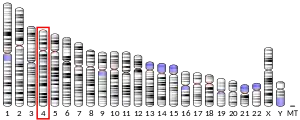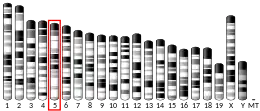| MRFAP1 | |||||||||||||||||||||||||||||||||||||||||||||||||||
|---|---|---|---|---|---|---|---|---|---|---|---|---|---|---|---|---|---|---|---|---|---|---|---|---|---|---|---|---|---|---|---|---|---|---|---|---|---|---|---|---|---|---|---|---|---|---|---|---|---|---|---|
| Identifiers | |||||||||||||||||||||||||||||||||||||||||||||||||||
| Aliases | MRFAP1, PAM14, PGR1, Morf4 family associated protein 1, PGR1` | ||||||||||||||||||||||||||||||||||||||||||||||||||
| External IDs | OMIM: 616905 MGI: 1914818 HomoloGene: 128357 GeneCards: MRFAP1 | ||||||||||||||||||||||||||||||||||||||||||||||||||
| |||||||||||||||||||||||||||||||||||||||||||||||||||
| |||||||||||||||||||||||||||||||||||||||||||||||||||
| |||||||||||||||||||||||||||||||||||||||||||||||||||
| |||||||||||||||||||||||||||||||||||||||||||||||||||
| Wikidata | |||||||||||||||||||||||||||||||||||||||||||||||||||
| |||||||||||||||||||||||||||||||||||||||||||||||||||
MORF4 family-associated protein 1 is a protein that in humans is encoded by the MRFAP1 gene.[5][6]
Interactions
MRFAP1 has been shown to interact with MORF4L1[7][8] and Retinoblastoma protein.[7][8]
References
- 1 2 3 GRCh38: Ensembl release 89: ENSG00000179010 - Ensembl, May 2017
- 1 2 3 GRCm38: Ensembl release 89: ENSMUSG00000055302 - Ensembl, May 2017
- ↑ "Human PubMed Reference:". National Center for Biotechnology Information, U.S. National Library of Medicine.
- ↑ "Mouse PubMed Reference:". National Center for Biotechnology Information, U.S. National Library of Medicine.
- ↑ Tominaga K, Magee DM, Matzuk MM, Pereira-Smith OM (Oct 2004). "PAM14, a novel MRG- and Rb-associated protein, is not required for development and T-cell function in mice". Molecular and Cellular Biology. 24 (19): 8366–73. doi:10.1128/MCB.24.19.8366-8373.2004. PMC 516751. PMID 15367658.
- ↑ "Entrez Gene: MRFAP1 Mof4 family associated protein 1".
- 1 2 Leung JK, Berube N, Venable S, Ahmed S, Timchenko N, Pereira-Smith OM (Oct 2001). "MRG15 activates the B-myb promoter through formation of a nuclear complex with the retinoblastoma protein and the novel protein PAM14". The Journal of Biological Chemistry. 276 (42): 39171–8. doi:10.1074/jbc.M103435200. PMID 11500496.
- 1 2 Pardo PS, Leung JK, Lucchesi JC, Pereira-Smith OM (Dec 2002). "MRG15, a novel chromodomain protein, is present in two distinct multiprotein complexes involved in transcriptional activation". The Journal of Biological Chemistry. 277 (52): 50860–6. doi:10.1074/jbc.M203839200. PMID 12397079.
Further reading
- Ewing RM, Chu P, Elisma F, Li H, Taylor P, Climie S, McBroom-Cerajewski L, Robinson MD, O'Connor L, Li M, Taylor R, Dharsee M, Ho Y, Heilbut A, Moore L, Zhang S, Ornatsky O, Bukhman YV, Ethier M, Sheng Y, Vasilescu J, Abu-Farha M, Lambert JP, Duewel HS, Stewart II, Kuehl B, Hogue K, Colwill K, Gladwish K, Muskat B, Kinach R, Adams SL, Moran MF, Morin GB, Topaloglou T, Figeys D (2007). "Large-scale mapping of human protein-protein interactions by mass spectrometry". Molecular Systems Biology. 3 (1): 89. doi:10.1038/msb4100134. PMC 1847948. PMID 17353931.
- Zhang P, Zhao J, Wang B, Du J, Lu Y, Chen J, Ding J (Oct 2006). "The MRG domain of human MRG15 uses a shallow hydrophobic pocket to interact with the N-terminal region of PAM14". Protein Science. 15 (10): 2423–34. doi:10.1110/ps.062397806. PMC 2242394. PMID 17008723.
- Tominaga K, Leung JK, Rookard P, Echigo J, Smith JR, Pereira-Smith OM (Dec 2003). "MRGX is a novel transcriptional regulator that exhibits activation or repression of the B-myb promoter in a cell type-dependent manner". The Journal of Biological Chemistry. 278 (49): 49618–24. doi:10.1074/jbc.M309192200. PMID 14506250.
- Pardo PS, Leung JK, Lucchesi JC, Pereira-Smith OM (Dec 2002). "MRG15, a novel chromodomain protein, is present in two distinct multiprotein complexes involved in transcriptional activation". The Journal of Biological Chemistry. 277 (52): 50860–6. doi:10.1074/jbc.M203839200. PMID 12397079.
- Leung JK, Berube N, Venable S, Ahmed S, Timchenko N, Pereira-Smith OM (Oct 2001). "MRG15 activates the B-myb promoter through formation of a nuclear complex with the retinoblastoma protein and the novel protein PAM14". The Journal of Biological Chemistry. 276 (42): 39171–8. doi:10.1074/jbc.M103435200. PMID 11500496.
This article is issued from Wikipedia. The text is licensed under Creative Commons - Attribution - Sharealike. Additional terms may apply for the media files.



